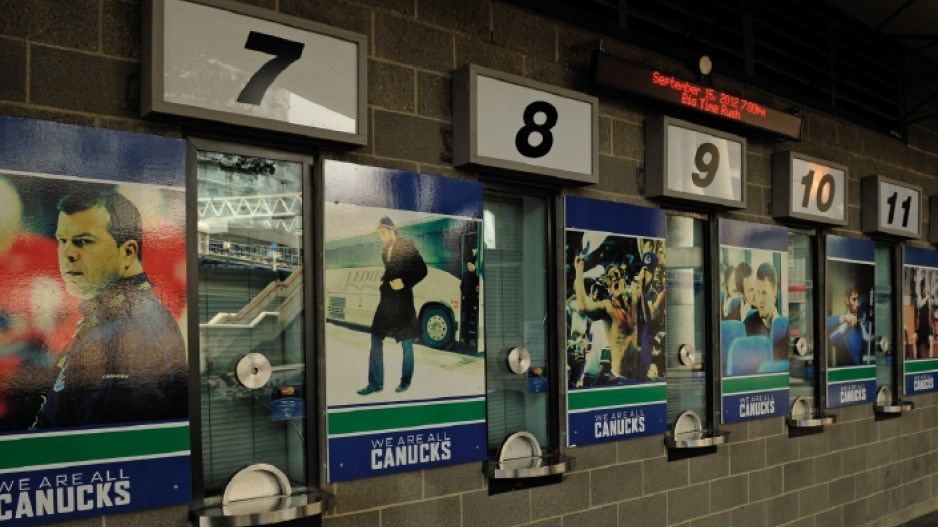The Vancouver Giants could get bigger and the Abbotsford Heat hotter if the National Hockey League (NHL) lockout stretches deep into October.
Giants owner Ron Toigo watched his Western Hockey League team open its 11th season on September 14 wearing replica uniforms of the 1945-46 Vancouver Canucks at the Pacific Coliseum. Attendance for the 2001-established franchise averaged 4,956 in 2003-04 and ballooned to 8,400 during the 2004-05 lockout. The average dipped below 7,000 last season.
“The last lockout played somewhat of a role putting us on the map,” Toigo said. “We’re the only other league with the superstars – Sakic, Gretzky, Lemieux, Crosby – who all played major junior before NHL.”
The Giants cut prices for red seats from $19 to $15 for the first three home games. Toigo concedes some fans from the Fraser Valley might be tempted to visit the Abbotsford Entertainment and Sports Centre for American Hockey League (AHL) action in October. Heat president Ryan Walter is hoping that the lockout could spur new interest in the taxpayer-subsidized Calgary Flames farm team. Last season, the Heat averaged 3,545 in the 7,046-capacity rink. Its 2010-11 loss was $1.37 million.
CBC carried some AHL games nationally last winter. Walter said he’s talking with regional carriers about increasing the team’s presence on Lower Mainland TV.
An economist who analyzes sports finance said even if there is a repeat of the 2004-05 lost season, Metro Vancouver and other NHL markets won’t suffer.
“The people that are predicting big negative impacts are assuming that people who were going to go to a Canucks game are now going to sit at home and spend nothing, eat nothing, keep the lights out, do nothing and all that money they would have spent on the Canucks they will just take out into the backyard and burn and that will be the end of that,” said associate professor Victor Matheson of College of the Holy Cross in Worcester, Massachusetts. “Realistically, what happens is people who lose their primary entertainment option 41 nights of the year in Vancouver are going to figure out something else to do.”
In a 2006 study, Matheson examined the consequences of sports strikes and lockouts on Florida metropolitan economies. His research found that none of the six new franchises or eight new stadiums and arenas built in the Sunshine State since 1980 caused a substantial increase in taxable sales, nor did the “sudden absence of professional sports due to strikes and lockouts” harm taxable sales.
But that doesn’t mean there will be no losers.
Canucks front-office workers took a 20% pay cut and are working four days a week. The Shark Club, the nearest sports bar to Rogers Arena, laid off three people.
Sysco Food Services supplies Rogers Arena, but Sysco vice-president of operations Bruce Pascoe refused to comment. Competitor GFS expects fewer orders from hotels, restaurants and bars within an eight to 10 block radius of Rogers Arena.
“We have a large market share downtown, we’ll definitely see the impact,” said GFS B.C. president John Zeron.
Downtown bars and restaurants could mitigate the loss of televised NHL games with other sports. UFC has monthly pay-per-view mixed martial arts cards through the end of the year.
National Basketball Association games featuring the Los Angeles Lakers and marquee signing Steve Nash could be also be a substitute draw.
The Nash co-owned Vancouver Whitecaps began a four-game Major League Soccer home stand at BC Place Stadium on September 23.
When the lockout is over, Matheson expects Canadian fans will return in droves. There could, however, be some erosion if Canadian fans realize they can live without NHL hockey.
“I’m a bit surprised to see the NHL want to restart this all again,” he said. “There are some things about your brand name that you don’t want being dragged in the mud every seven years or 10 years.”




